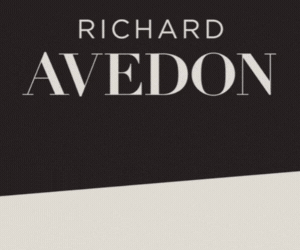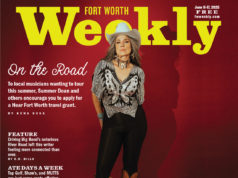Nevada Hill’s doom project Bludded Head continues to churn out new material even while he’s undergoing cancer treatments. And from two diverse ends of the pop music spectrum, punks Not Half Bad and rapper Lou Charles keep their focus on the artists as young men. –– Anthony Mariani
Bludded Head’s Reign in Bludd
Last summer, Fort Worth native Nevada Hill, frontman for the Denton experimental-rock trio Bludded Head, was diagnosed with stage four melanoma and has been going through the expected shitstorm of emotional, financial, and physical stress ever since. With Ryan Williams on stand-up bass and David Saylor on drums, Hill nevertheless popped into a Chicago studio with former Dentonian Matthew Barnhart behind the soundboard to record the band’s new four-song EP. Bludded Head has half-jokingly referred to Reign in Bludd as “bummer vibes,” but it’s something a lot more alive than that –– a straight-from-the-heart doom rock catharsis with shrieking guitars and whiplash tempo changes that you won’t likely hear piped over the sound system at your local cancer support group.
The first tune, “Shitsucker,” pretty much establishes the pissed-off template of the collection, though Bludded Head forsakes bratty punk insouciance for a more operatic and compelling timbre: The slow, sinister approach of thudding bass and randomly picked guitar notes soon explodes into an orgy of towering architectural metal chords. Hill’s vocals alternate between a self-consciously nerdy voiceover narrating stray observations about hospitals to a guttural shriek that sounds like The Exorcist’s demon Pazuzu with strep throat.
“Fuckitdry” begins with a bouncy shuffling beat and barreling locomotive fretwork that eventually staggers into layers of John Cale-style feedback and finally collapses in a flailing storm of drumsticks. The 10 minute-plus “Pouring Rain” opens with a lovely, reflective guitar half-melody that slides seamlessly into a series of drawn-out, vibrating chords that’ll set your bones buzzing. (“When they came in the room they were surprised,” Hill narrates matter-of-factly. “They thought he was a goner for sure.”)
Reign in Bludd ends with a cover of the Subpop band Codeine’s “Pea,” a singer-songwriter-esque ditty with strummed guitar that continues while a veil of ripping distortion descends like a cloud of poison gas. Hill sings in a half-whisper, half-croak, seemingly unperturbed by the darkness that’s enveloped him. Bloodied but unbowed, he has said he will continue to sing until he no longer has a voice.
Reign in Bludd is a triumph of calamitous noize rock, a manifesto about living with a disease written and recorded on the artist’s own stark terms. –– Jimmy Fowler
Lou Charles’ Who Is Lou?, Vol. 1
When rap duo Midway released its first full-length album, FunEmployment, Vol. 1, last October, it represented the final phase of MCs Lou Charles and Kev Nolan’s transition from dorm-room party rappers to polished studio pros. The two were a breath of fresh air, purveying light-hearted, uptempo anthems with lyrical depth and serious mic skills.
There’s plenty of the same hands-in-air vibe on Charles’ recently released solo album. But the 14 tracks on Who Is Lou?, Vol. 1 also show how much Charles has grown into his own voice. Throughout the album, his lyrics seamlessly move from quirky, nerdy references to Yoda, Batman, and video games to songs about making money, letting his family down, and occasionally to raunchy libidinal bravado. He’s also very much a creature of the times, with shout-outs to his own promotional hashtags and Instagram and Twitter accounts built into his songs.
Musically, the overall tone is darker, tenser, and more experimental than anything Midway’s ever done. All of the songs are built for modern attention spans –– the longest is less than three minutes.
On the opening track, “Lou, Where You Been?” a haunted-sounding glockenspiel, dripping with effects, carries the melody, while the low end bounces with the drama of a film score.
On the multi-rhythmic “Lou Magic,” Charles uses a staccato delivery and spits rhymes like a tommy gun over groovy East Coast-influenced break beats: “A young Harry Houdini / You rappers barely do see me / Been busy paying my dues / Rarely do I dream of Genie.”
The jazzy slow jam “Let Pops Down,” a song about disappointing his father, delivers one of the album’s most sincere moments: “Junior high, writin’ lyrics in my notebook / Then stashin’ them ’round the crib where mom and pops won’t look / Had to keep my dream of raps under wraps like turbans / Told pops I could be the one / He said, ‘That ain’t the purpose.’ ”
Lyrically, Charles doesn’t lack for ambition –– he references Black Star and Talib Kweli on the opening track –– and for the most part he delivers. If the album has a failing, it’s the tired rap tropes that are littered throughout, like those about making a ton of money and having a lot of sex –– “#DYDS” (Dick You Down Sunday) is downright sophomoric.
Who Is Lou?, Vol. 1, though, is full of Charles’ smarts and versatility. His rhymes are often clever verging on dizzying. He’s managed to distinguish himself from Midway without losing all of the things that make his band great. And that takes real skill. –– Eric Griffey
Not Half Bad’s Sorry Dudes
Not Half Bad is an interesting band because its entire discography seems to chronicle the life cycle of teenage punk aspirations and how they evolve or unravel once cynicism becomes the most effective way of dealing with the sucky realities of adulthood. Well, that and booze. NHB has always been a scrappy three-chord pop-punk band with anthemic, singalong hooks; jangly, melodic basslines; and journalistic lyrics, but even on older songs, ones preoccupied with the microcosmic drama of the local punk rock scene, the songwriting still puts you there on the porch. Or the kitchen or the van or wherever else the lyrics came from.
On its new EP Sorry Dudes, NHB’s best lines function like the captions on an editorial cartoon. In “Daybeers,” frontman Matt Scifres yells, “Everyone does the things they can to make it through the day! / Like the kid who’s doing lines in a gas station in Denton with the scratch-off that he bought!”
When that daily-grind detail is paired with self-reflective honesty, as on “Armchair Anarchism” and the heartbreaking closer, “You’re Alright. You Know That, Kid,” you want to root for these guys to keep going, no matter what lineup changes, jobs, or disillusionments come their way. –– Steve Steward












